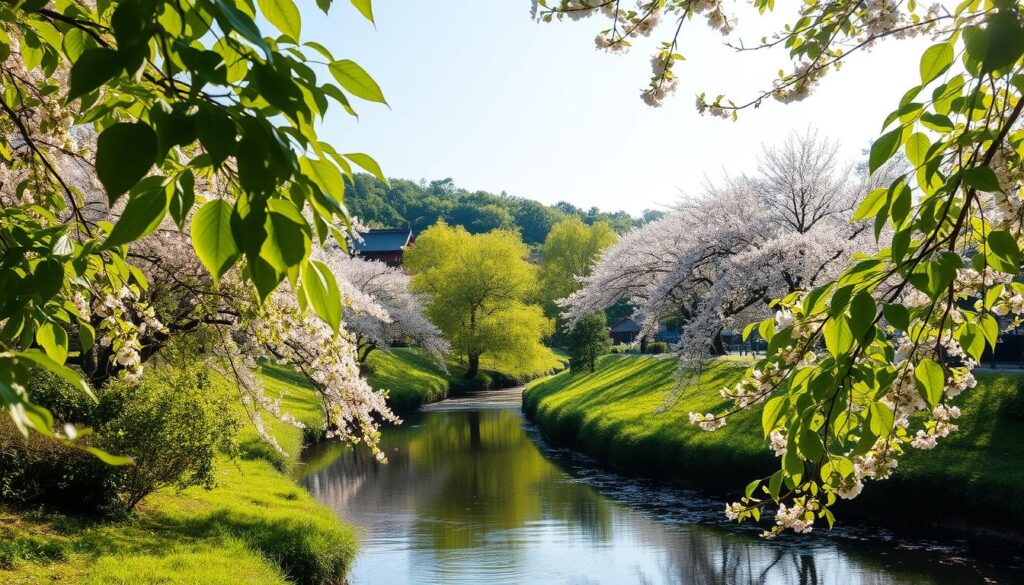Have you ever wondered what the Chiba name means in Japan? This intriguing name has a rich history and a significant cultural meaning. Originating from the kanji characters 千 (chi), meaning “thousand,” and 葉 (ha), meaning “leaves,” Chiba symbolizes abundance and lush greenery.
This etymology is tied to the Chiba prefecture in the Kantō region of Japan and to the origins of the Chiba name. The name is significant because it’s used by 100% of famous people. You can find it in voice acting, sports, and entertainment.
To grasp the Chiba name’s significance, we must explore its origins and cultural impact. This article will look into the name’s meaning, history, and variations and give insights into its role in Japanese culture.
Understanding the Etymology of Chiba
The name ‘Chiba’ carries a significant meaning rooted in Japan’s rich culture and history. Its translation and origins offer fascinating insights into its symbolic connotations, geographical connections, and historical significance.
The Meaning of ‘Chiba’: Thousand Leaves
The name ‘Chiba’ translates to “thousand leaves” in Japanese, derived from the kanji characters 千 (chi) meaning “thousand” and 葉 (ha) meaning “leaves.” This combination creates a vivid image of abundance and nature, reflecting Japan’s deep appreciation for greenery and growth. Symbolically, ‘thousand leaves’ can represent prosperity, suggesting an environment where life flourishes. This meaning resonates beautifully with the lush landscapes of Chiba Prefecture, inviting visitors to see the region as a haven of natural beauty.
Roots in the Chiba Prefecture
Chiba’s historical roots trace back to Chiba-gun in Shimōsa, an area steeped in ancient heritage. Chiba Prefecture was officially established in 1873, following the merger of Kisarazu and Inba Prefectures, but its history extends far beyond that. The Chiba name is linked to a prominent samurai clan that played a significant role during Japan’s feudal era. This clan established itself in the region during the 12th to 15th centuries, where they became influential figures in local governance and culture.
The historical ties of Chiba to its namesake region are significant not only in terms of governance but also in culture and tradition. The sense of identity within Chiba Prefecture is deeply rooted in its namesake’s legacy. To learn more about the history of Chiba Prefecture, visit this informative link.

Historical Mentions in Japanese Literature
Chiba’s name appears in historical texts, highlighting its longstanding importance in Japanese culture. One of the earliest mentions can be found in the Man’yōshū, a classic collection of Japanese poetry compiled in the 8th century. This anthology not only preserves poems but also offers insights into its time’s geographical and cultural landscape. The mention of ‘Chiba’ in such respected literature emphasizes its cultural significance and helps us appreciate this name’s traditional roots.
By referencing historical records like the Man’yōshū, we can understand how names like Chiba contribute to the history threads connecting modern Japan to its past. For more insights, check out this discussion on Japanese literature.
Cultural and Historical Significance of the Chiba Name Means in Japan
Understanding the cultural and historical significance of the Chiba name sheds light on its prominence in Japanese history. The Chiba family has played a vital role, not just in local governance but also in the broader context of samurai heritage.
The Chiba Clan and Samurai Heritage
The Chiba clan emerged as a prominent branch of the Taira clan during the 12th century. They were influential figures in Shimōsa province, where they established themselves as samurai warriors. The clan’s lineage is noted for contributing to regional power dynamics during Japan’s feudal era.
One notable aspect of the Chiba clan’s history is its close ties to major battles and political changes in Japan, particularly during the Kamakura period. Due to their loyalty and prowess in battle, the Chiba clan received prestigious titles, helping to shape the social fabric of their time. To further read the clan’s history, visit SamuraiWiki.
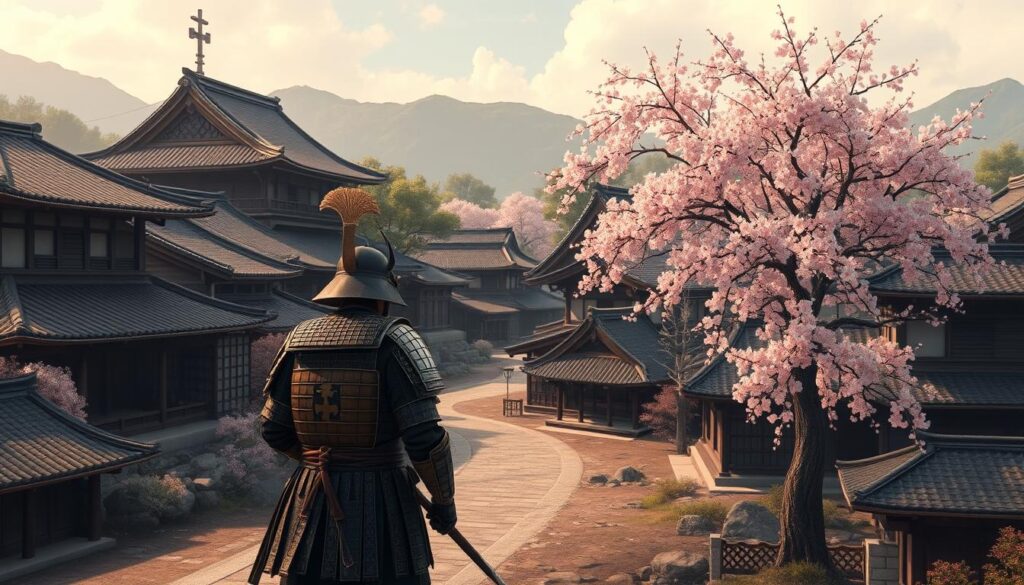
Symbolism in Family Crests and Armory
The Chiba family’s coat of arms, known as “Kamon,” holds deep symbolism. Kamon are carefully designed symbols representing family lineage and values. The Chiba crest features elements that signify bravery and readiness for battle, reflecting the clan’s warrior spirit.
Each crest has a unique meaning. For example, the motifs used in the Chiba Kamon emphasize their heritage of courage and honor. Natural elements, often representing abundance and resilience, connect them to their roots in planting and preserving the land. To learn more about Kamon and its meanings, check out Japanese Family Crest: List of the Lineage Symbols.
Connections to Local Legends and Folklore
The Chiba name is intertwined with local legends highlighting its cultural significance. One tale involves a samurai and a swan maiden, a popular motif in Japanese folklore. This story illustrates the mystical bond between humans and nature, symbolizing grace and strength.
According to these tales, swan maidens are often depicted as beautiful women who can transform from swans to humans. These stories emphasize themes of love, sacrifice, and the intertwining of cultural identities. Such legends enrich the narrative of the Chiba name, offering insight into the values cherished by past generations.
Moreover, exploring the Swan Maiden stories can provide deeper cultural understanding. The story of the Swan Maiden captures the essence of love and devotion, making it a cherished part of Japanese mythology. For more on this fascinating folklore, consider visiting Swan Maiden.
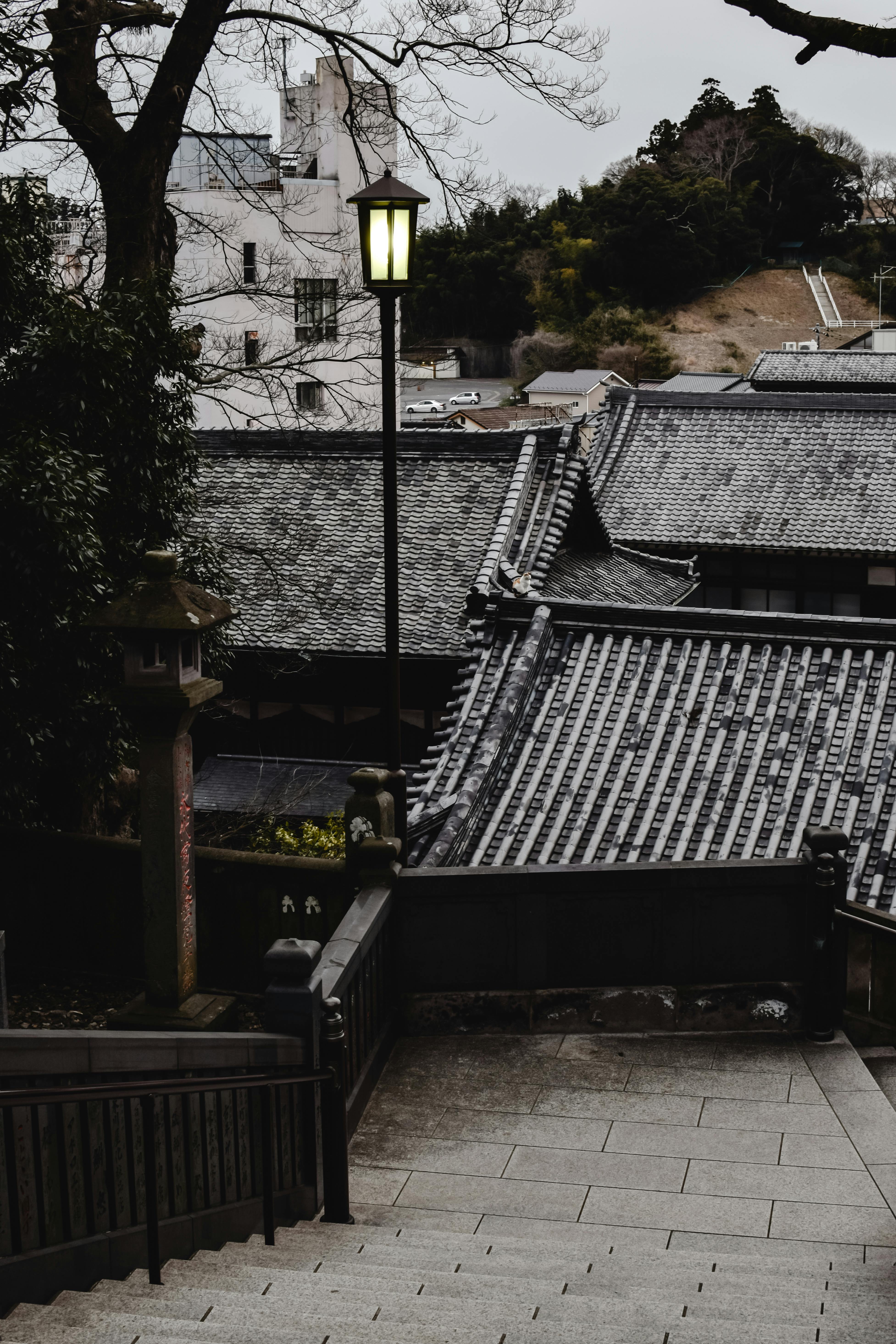
Photo by Eva Bronzini
Modern Relevance and Global Impact of the Chiba Name
The Chiba name is important in Japanese history and maintains a vibrant presence today. Let’s explore how this name is reflected in contemporary Japan, variations in pronunciation abroad, and its global connections.
Chiba in Contemporary Japan
In modern society, the Chiba name is widely recognized in various aspects—from local governance to cultural events. Chiba Prefecture, known for its rich historical background, is the administrative center and plays a crucial role in local identity. Residents take pride in their heritage, and cultural festivals often celebrate the region’s history.
The name ‘Chiba’ also appears in modern pop culture, including anime and manga, contributing to its visibility beyond Japan. The connection to nature is evident in local events focused on environmental appreciation, reinforcing the name’s meaning of “thousand leaves.”
Additionally, Chiba is an important transportation hub, with Narita International Airport located there. This accessibility furthers its relevance, welcoming travelers who wish to experience the prefecture’s unique blend of tradition and modernity. For insights into the name’s contemporary significance, visit this source.
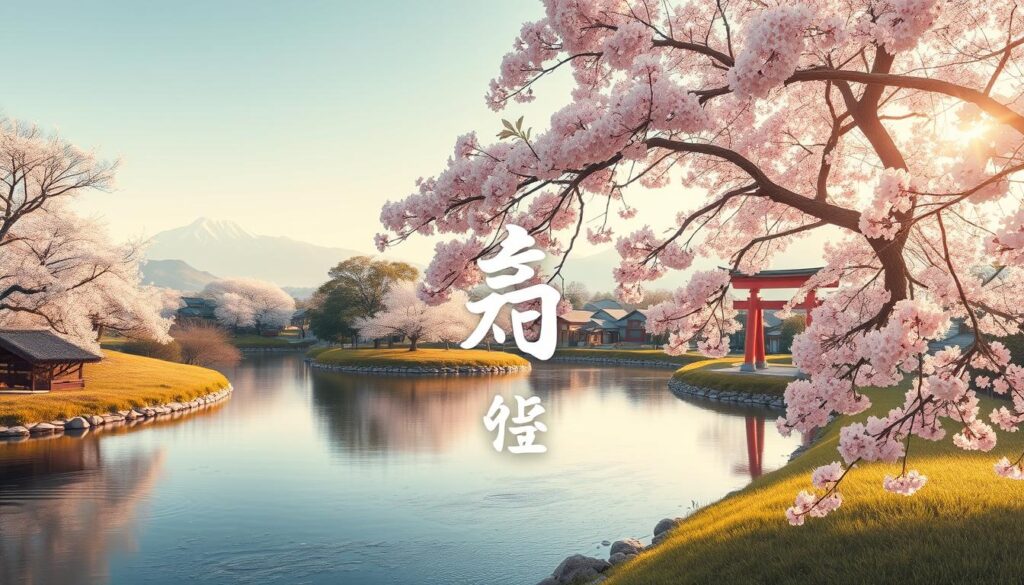
Variations and Mispronunciations Abroad
As the Chiba name travels across borders, it uses new spellings and pronunciations. English-speaking countries often pronounce it as “Cheeba” or “Chiva.” These variations can lead to misunderstandings and highlight the name’s adaptability in diverse cultures.
Such variations can affect how individuals with the Chiba surname are perceived globally. For example, the playful phonetic twist to “Cheeba” is sometimes associated with slang in certain cultures, possibly diverting from its rich Japanese heritage. Understanding the correct pronunciation is key; resources like How to Pronounce Chiba and Forvo guide correctly articulating the name.
The Global Presence of the Chiba Surname
The Chiba surname has found a home beyond Japan, with many individuals bearing the name across the globe. The surname is common in East Asia, particularly in regions with historical ties to Japan. According to research, over 95 percent of Chibas live in East Asia, showcasing the name’s strong roots in that region.
In places like the United States, the name appears in diverse communities, reflecting the multicultural nature of modern society. Census data indicates the Chiba surname appears in various settings, reinforcing the blending of cultures. For a deeper understanding of its global spread, check out this resource.
The Chiba name holds a unique place in Japan and serves as a bridge across cultures. This global presence further enriches its narrative, connecting stories and histories from different backgrounds.
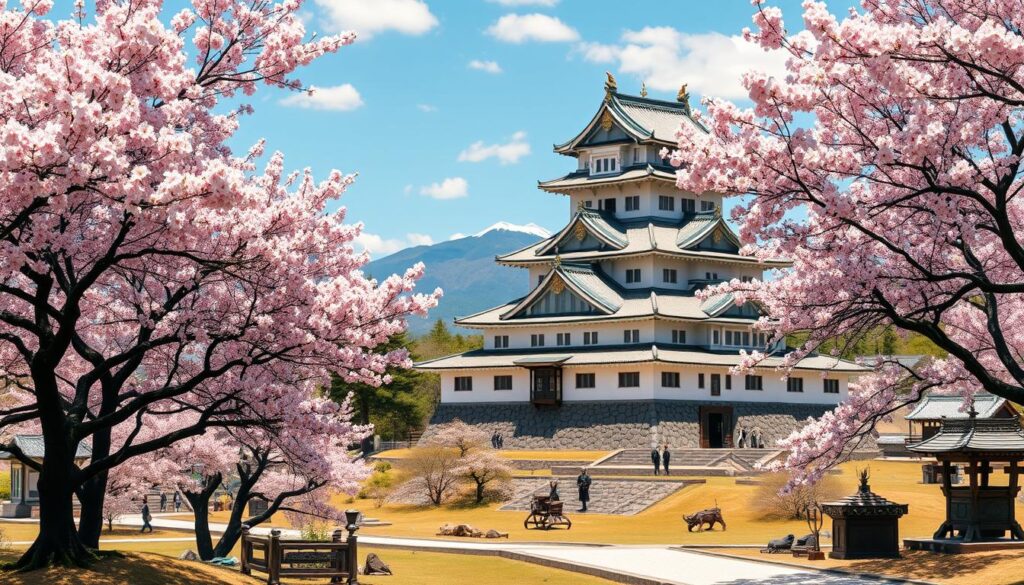
Conclusion
The Chiba name carries profound historical and cultural significance in Japan. Rooted in the meaning “thousand leaves,” it symbolizes both abundance and natural beauty, reflecting the lush landscapes of Chiba Prefecture. This name connects us to a rich heritage, from the influential samurai clan to its modern evolution in Japanese society.
As you explore more about the Chiba name, consider how it represents not only a geographical location but also the enduring values of prosperity and harmony with nature.
What stories or aspects of Japanese culture intrigue you the most? Share your thoughts and continue discussing the fascinating history behind names like Chiba.

